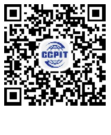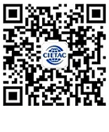

13 November 2014
In the hope of strengthening and developing international cooperation in arbitration, deepening the understanding of the current structural reform of CIETAC along with the amendments to CIETAC Arbitration Rules, CIETAC Vice Chairman and Secretary General Yu Jianlong led a delegation to Sweden, the United Kingdom and Germany from 26 October to 4 November 2014.
The CIETAC delegation was constituted by CIETAC arbitrators, well-known international and domestic lawyers and CIETAC staff. During its visit, the delegation accomplished its goals through a range of effective promotional activities.
I. Main Activities in Sweden
In Sweden, the CIETAC delegation co-hosted a seminar on Chinese and Swedish Arbitration with the Arbitration Institute of the Stockholm Chamber of Commerce (SCC). Mr. Ulf Franke, Chairman of SCC, Mr. Johan Gernandt, former Chairman of SCC, Ms. Annette Magnusson, Secretary-General of SCC, and about 70 experts, scholars and experienced lawyers from Sweden, China and Germany participated in the seminar. In his speech, Mr. Yu Jianlong introduced the remarkable development of the Chinese economy, the accelerated growth of international commercial activities and the increasingly important role played by arbitration in resolving international commercial disputes. The seminar co-hosted by CIETAC and the Arbitration Institute of SCC was beneficial for the exchange of information and experience, and to the potential cooperation and development of the two institutions. He stated that the two institutions have had a long history of cooperation deeply rooted in friendship. He expressed the hope that the two institutions should not only strengthen ties by co-hosting seminars, but should also carry out cooperation in academic research, in order to provide further platforms to improve the development of international commercial arbitration. The speakers at the seminar spoke about the recent developments in Swedish and Chinese arbitration, Chinese arbitration system and the Emergency Arbitrator Procedure of the Arbitration Institute of SCC as well as the enforcement of foreign arbitral awards in China. The seminar achieved a complete success.

In Sweden, the CIETAC delegation visited the Supreme Court, and discussed issues concerning the enforcement of foreign arbitral awards in Sweden. The delegation met with director of Arbitration Law Amendment Commission from the Swedish Ministry of Justice, exchanged opinions on arbitration matters that concerned both parties. In order to learn about the specific demands of the clients of arbitration, the CIETAC delegation also paid visits to companies and law firms.
II. Main Activities in the United Kingdom
In the United Kingdom, the CIETAC delegation visited the Supreme Court, and learned about the Supreme Court’s working process and its recognition and enforcement of arbitration awards. Mr. Yu Jianlong also met with Judge Blair and Judge Robin from the Court of Appeal. Judge Blair extended a warm welcome to the CIETAC delegation for its visit in the UK. He expressed the support to international arbitration by the judiciary in the United Kingdom, and illustrated its effort to promote a close connection with arbitration and to provide a well-organized social and legal environment for the development of arbitration. Judge Blair also expressed support for the Bar Council Training Scheme (BCTS) for Chinese lawyers. Being a member of the organizing committee of the BCTS, he spoke highly of the program’s benefits to Chinese lawyers for the understanding of the operation of the judiciary system in the United Kingdom, and its important role in nurturing Chinese lawyers that are familiar with the UK’s legal system. Mr. Yu Jianlong emphasized that Chinese arbitration gained progressive development throughout the years. In 2013, arbitration institutions in China accepted over 100,000 cases in total, with an aggregate disputed amount of up to RMB 160 billion yuan. There is lots of potential for improving the use of arbitration in settling disputes for the purpose of building a harmonious society. The Chinese judiciary system is becoming increasingly supportive of arbitration, and is exercising a more strict and uniform standard in the setting aside of arbitral awards and the refusal of enforcement of arbitral awards.

Mr. Yu Jianlong met with former Foreign Secretary of the United Kingdom, Mr. Straw, in the Parliament House. Mr. Straw expressed a sincere welcome to Mr. Yu Jianlong and the delegation, and noted that the United Kingdom had always paid great attention to the development of international arbitration. The government made unswerving efforts to build London into a center of international commercial and maritime arbitration, in order to promote and maintain the UK’s legal image in the world. Mr. Straw specifically asked about the enforcement of foreign arbitral awards in China. Mr. Yu Jianlong expressed his gratitude for Mr. Straw’s meeting with the delegation, and introduced the development and caseload of CIETAC and the China Maritime Arbitration Commission. He stressed that though Chinese arbitration achieved huge developments in the past years, there is still much room for improvement against the background of globalization and there is a lot to learn from the British counterparts. Mr. Yu Jianlong also introduced the enforcement of foreign arbitral awards in China and the preparation of the International Congress of Maritime Arbitrators (ICMA) to be held in Shanghai in May 2015.
In London, Mr. Yu Jianlong attended an International Mediation Conference co-hosted by Herbert Smith Law Firm and the IDR Group. The conference was hosted in the City of London, with its Mayor Ms. Woolf giving a welcome speech. In the session of Institutional Mediation Services, Mr. Yu Jianlong expressed his view on whether institutions should give priority to mediation when accepting cases. In his opinion, considering the unique character of arbitration, institutions should not offer opinions on the merits of cases, and therefore should not recommend other forms of dispute resolution to the parties in the first place. However, after the formation of the arbitral tribunal, the tribunal should decide whether it should encourage the parties to mediate in order to effectively resolve the dispute and reach a mutually beneficial solution for the maintaining of their business relationships. Mr. Yu Jianlong briefly introduced the practice and recent development of CIETAC in terms of the combination of arbitration with mediation. The Secretary General of the International Chamber of Commerce International Court of Arbitration, Chairman of the United States Preventive Dispute Resolution Center, Vice Chairman of American Arbitration Association International Dispute Resolution Center, Deputy Managing Director of JAMS, Executive Director of CEDR and the former Chairman of the Arbitration Institute of SCC participated in the discussions of this session, and respectively expressed their views of the value and development of mediation. The former Chairman of the American Arbitration Association, Mr. William Slate, moderated the session. 150 representatives from over 20 countries including the United Kingdom, the United States, Sweden, Greece, France, Portugal, Russia, the Netherlands, Germany and China attended the conference.
In London, the CIETAC delegation also visited law firms.
III. Main Activities in Germany
In Frankfurt, the delegation co-hosted an arbitration seminar with the Chinese European Arbitration Centre GmbH, Deutsche Institution für Schiedsgerichtsbarkeit (German Arbitration Association), and the Swiss Arbitration Association. Mr. Yu Jianlong introduced the structural reform and highlights of the new Amendments to CIETAC Arbitration Rules. Chinese and German delegates respectively introduced the enforcement of German arbitral awards in China and the enforcement of Chinese arbitral awards in Germany. In the form of a case analysis, the hosting institutions presented their practice in procedural management and answered questions about case hearings and time limits for arbitral awards as well as practices with respect to transcripts. The seminar achieved its purpose.

The delegation met with the Secretary General of the Hamburg Bar Association and learned about the scale of the Hamburg Bar Association, its administrative structure, its job description and its requirements to lawyer’s qualification. Mr. Yu Jianlong explained the structure and organization of Chinese Lawyers’ Association, the purpose of the delegation’s visit to Germany, and exchanged opinions on the possibility of jointly adding arbitration to the training of lawyers.
The delegation also visited Handelskammer Hamburg (Hamburg Chamber of Commerce) and met with its director of Arbitration and Mediation. The director introduced the structure of Hamburg Chamber of Commerce and arbitration institute, its main work and acceptance of cases. Mr. Yu Jianlong introduced the history of CIETAC, its acceptance of cases and recent development, as well as the purpose of the delegation’s visit to Germany. The delegates also discussed with the Arbitration Institute about practical matters in arbitration.
In Germany, the delegation visited SNB Law Firm, discussing matters regarding the recognition and enforcement of foreign arbitral awards in Germany, the practice and development of German arbitration and many other key issues with the Partner of the Law Firm and CIETAC Arbitrator Mr.Axel Neelmeier.
This visit has been critical to the promotion of CIETAC arbitration and to the expanding of the understanding of new reforms of CIETAC and amendments to CIETAC Arbitration Rules. During the visit, the delegation reinforced the friendship and cooperation with CIETAC’s old friends, and established connections and communications with new institutions. The CIETAC delegation strengthened its ties with Swedish, German and the United Kingdom’s court systems, meanwhile, it also learned about the actual demands of arbitration clients by visiting law firms and enterprises. Recently, CIETAC experienced a progressive increase of its caseload, with cases involving parties coming from 40 to 50 countries and regions every year, including a lot of European countries. Hence, to improve the quality of its services and to promote its internationalization is the starting point of CIETAC’s reform and development. This visit to Europe countries significantly contributed to CIETAC’s establishment and development of sustainable and stable international connections.




